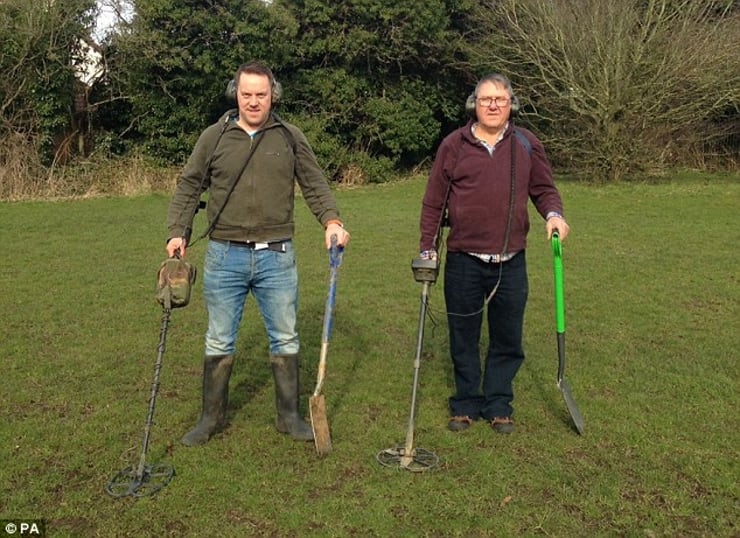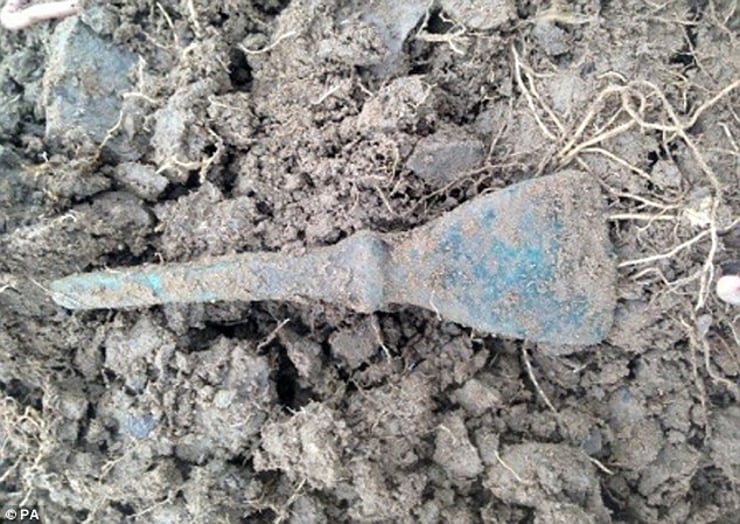Kelti, římani, anglosasové, vykingové... Mají tam všechno. Británie překypuje historií, skutečné eldorado hledačů. Jedním z mých velkých snů je strávit tam hledáním alespoň 14 dní.
9.2.2016 Bronze Age burial site
Categories: Calendar , Nálezy nejenom s detektorem ve Velké Británii a Irsku
Five years ago, a pair of prospectors with metal detectors discovered a burial site in a field in Lancashire. It was in use from the late Neolithic to the Middle to Late Bronze Age. First they came across several artefacts.
The lucky finders are long-time friends who often go on prospecting walks, namely Matthew Hepworth and David Kierzek.
They had to wait a long time for this extraordinary find. They came across the grave twenty long years after one of the aforementioned prospectors first searched the field in question. The ancient cairn had been there untouched for thousands of years.
The discovery was immediately reported and archaeologists went to the site, and since July 2016 they have been conducting an extensive survey of the field in question. They even received a grant of almost fifty thousand pounds. One of the finders spoke to the media. "The grave was really intact, which makes it very rare. We wouldn't have found it if we hadn't come across a few artefacts first," said Matthew Hepworth, then forty years old.
He returned to the field in Lancashire, north-west England, several times over 20 years, at least five times, he said. "I was lucky that we eventually found the grave. The first thing we came across was an old chisel, which is quite a rare thing. There are only a handful of those in the UK. Then we dug a dagger and fragments of other bronze objects out of the ground," Hepworth recalled.
Hepworth works as a nurse and searching with metal detectors is a great hobby of his. He has previously discovered a cache of Viking silver in the same area where he found a Bronze Age grave, which is on display at the Lancaster City Museum.
But the discovery of a burial monument that had been in use for about 1,500 years also gave him great pleasure. "I'm certainly not disappointed in any way, quite the opposite. It's a very significant thing. I believed that the field still holds a piece of history," Hepworth admitted.
Further research was then carried out by DigVentures, a group founded by a trio of archaeologists. They have been conducting long-term surveys of various important sites, but they are also struggling with a lack of funding, so they are trying to get grants. "Sites like this are the best way to learn more about British life in ancient times. Perhaps in the Bronze Age," the archaeologists said.


Sources: www.bbc.com, www.dailymail.co.uk
The article is included in categories:




